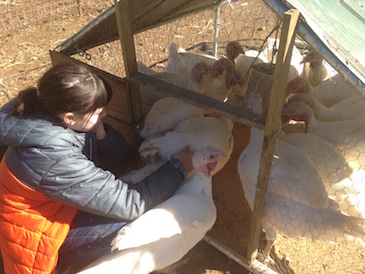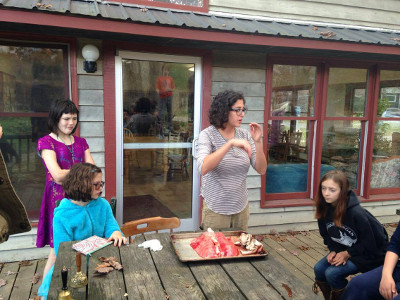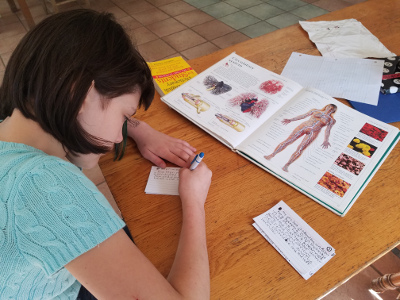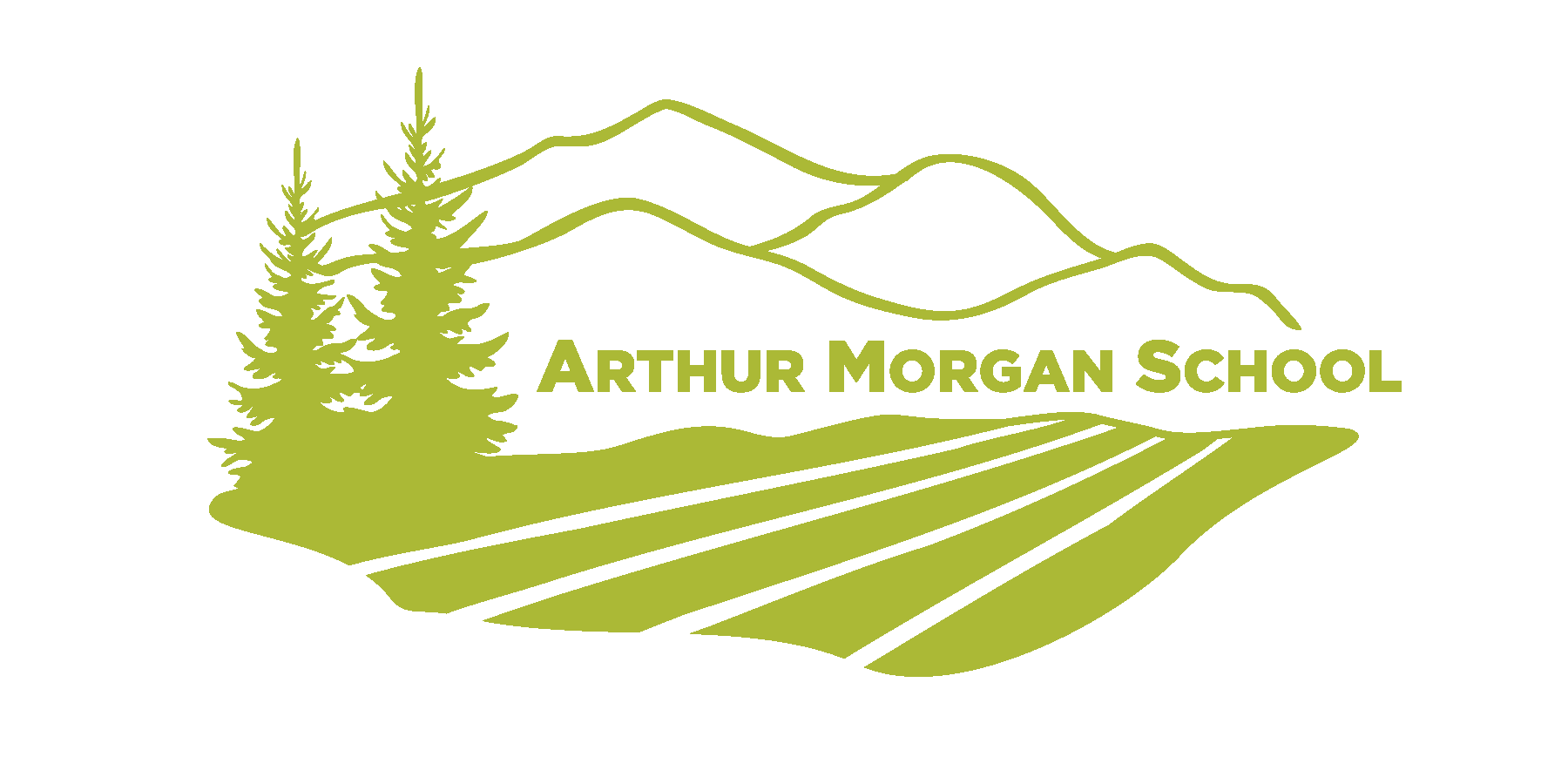Learning Unexpected Life Skills

The lessons students take away from your classes aren’t always the ones you intend to teach. The most valuable lessons in the classroom may not even be academic.
As Arthur Morgan School’s farmer, I have taught a similar biology course based on the school’s livestock program for several years. We have talked about the course on this blog before as an example of how AMS empowers its students with real decision making power. Since students are able to choose their courses at AMS, I have always had students who were really interested in the topic. The students learn to take care of our turkey flock in their last weeks before the Thanksgiving, then learn about anatomy and different biological systems as we harvest them. I repeatedly see how working with the animals first hand stimulates their curiosity, respect and sense of wonder for the miracle of life in a way a textbook, models or videos do not.
When Students Interests are Not Aligned with Our Own
 One of the most frustrating parts of being a teacher is when your students struggle to be engaged with what you want to teach them. I chose to be a teacher partly because I wanted to share how beautiful and complex the world is when viewed through the lenses of chemistry and biology.
One of the most frustrating parts of being a teacher is when your students struggle to be engaged with what you want to teach them. I chose to be a teacher partly because I wanted to share how beautiful and complex the world is when viewed through the lenses of chemistry and biology.
This year I had two students who were not inspired by the dissection element of the class. When I tried to teach them about tendons and ligaments by examining a turkey’s foot (typically a part of the animal we compost or cook into broth), they asked not to participate. They felt squeamish. It was not respectful of the animal to use it for a purpose other than food. The subject matter was unimportant and not worth learning. If they had to learn anatomy, they would rather do it by reading a textbook.
At first I was alarmed by this request, but at AMS we follow the child, so I gave in. We did lectures and research papers. By the end of the course, I had written the experience off as a failure. I couldn’t have been more wrong.
Accommodating Student Struggles

Michael* is a third year ninth grader. He is a student who has liked to do things his own way and is very sensitive to others offering him direction. He can also be extremely defensive when he does not know how to do something, which has led to recurring problems completing his assignments. Day after day I pushed him to understand the material thoroughly, reminding him that he had options when he got stuck. Michael did not appreciate these higher expectations and over the six week course, we had several battle of wills.
Susan* is a seventh grader. A new AMS student and slightly immature for her age, Susan is prone to outbursts when she feels overwhelmed by her work or is asked to do something she does not want to do. I spent many classes redirecting her emotions and behaviors in more positive directions instead of talking about lungs and gizzards.
Surprising Lessons
In the last week of the course, I asked the students to evaluate themselves, something I always do to help them prepare for their student led conferences. I wasn’t sure what my students were going to write this year. I expected them to pull some fact out of a book that they liked, but what they said surprised me.
Michael stated that he “learned to how ask for help in this class.” When he did not know a word, he learned to ask me to help him understand it rather than deciding the whole assignment was too hard. Accordingly, he was also proud of how good of a job he did “keeping up with all my research and writing homework.”
Susan expressed that she learned how to “communicate my feelings, be respectful and ask for help instead of getting mad at Kavita.” After seeing the type of support she would receive when she handled herself in a more mature way, she strove to change her behavior accordingly.
Real Skills and Life Long Learning
I was humbled to remember that as educators, supporting a student’s personal growth is the most important work we can do. Our students may not learn every fact their public school peers learn, but the skills both of these students gained will help them throughout their lives. Although my students were not inspired by biology, they learned how to research by seeking out all the resources available to them. They learned how to articulate their needs and work alongside their teachers. Moving forward, they will be better prepared to learn whatever does inspire them.
-by Kavita Hardy
AMS provides lots of opportunities for learning life skills!
Learn More
